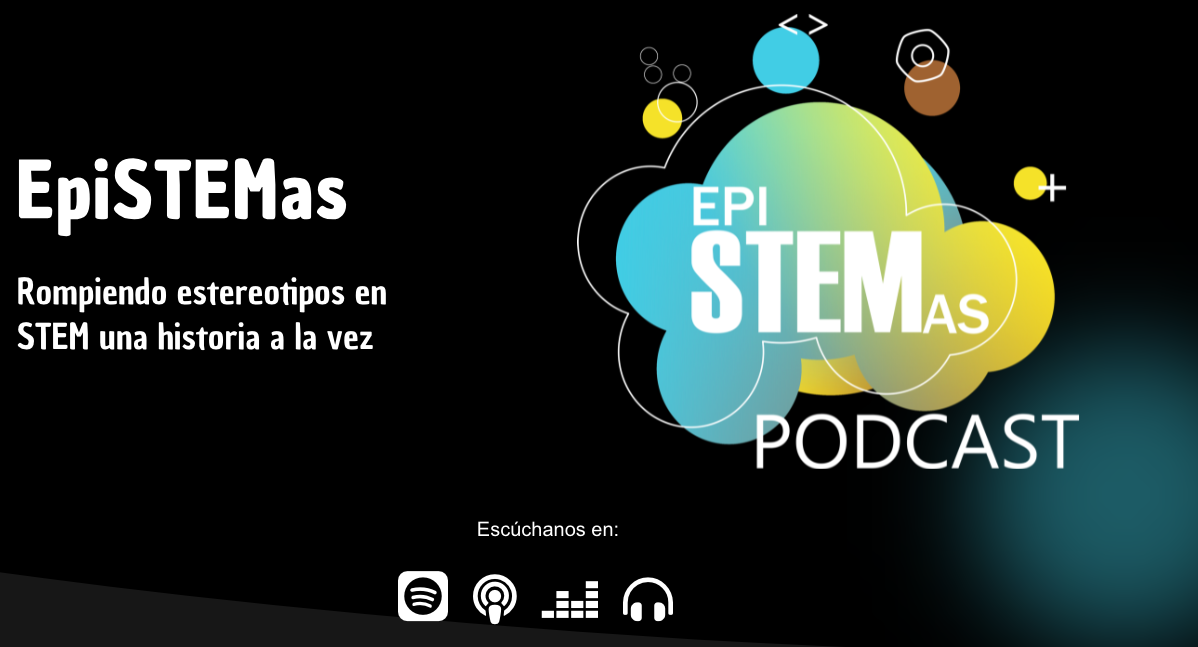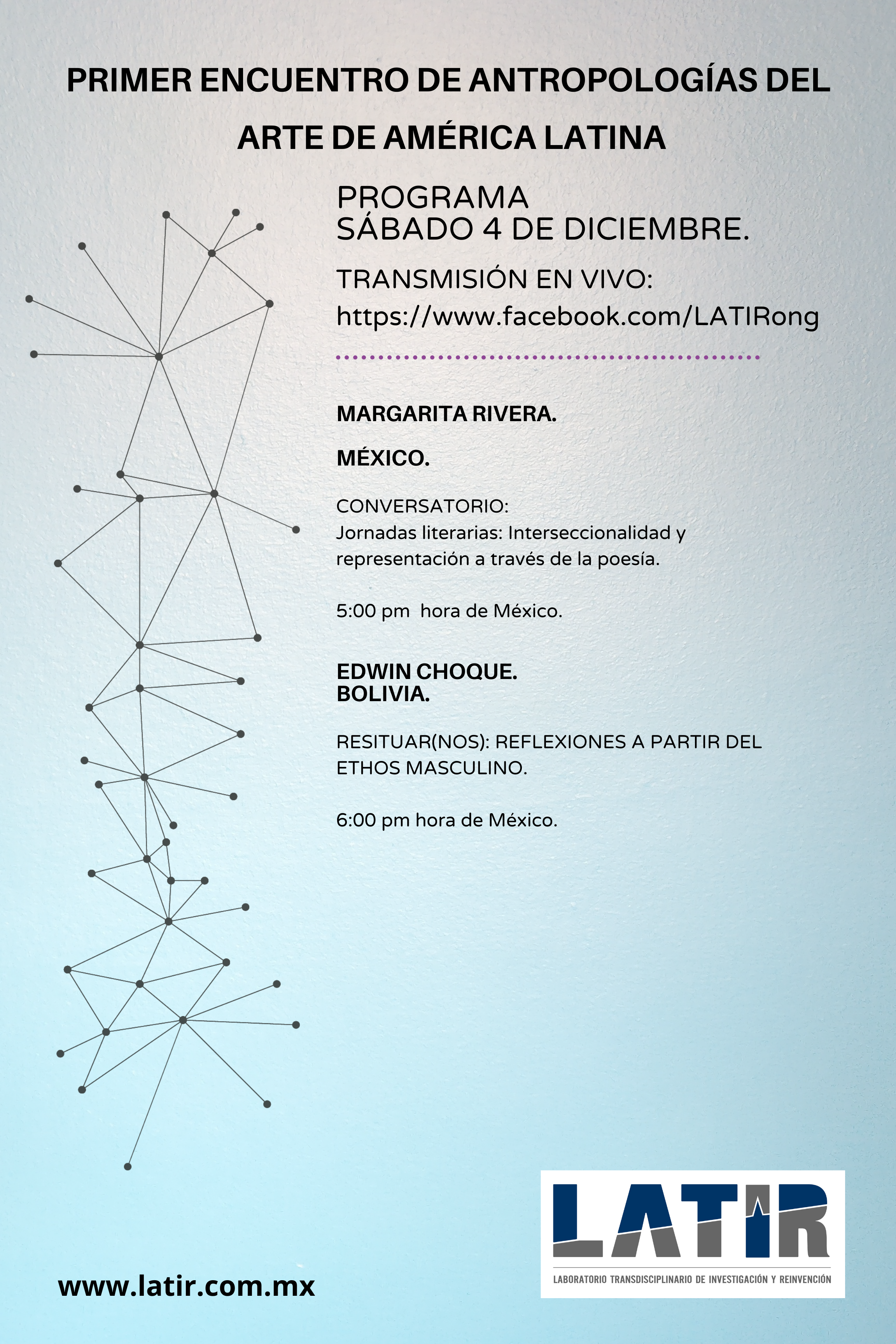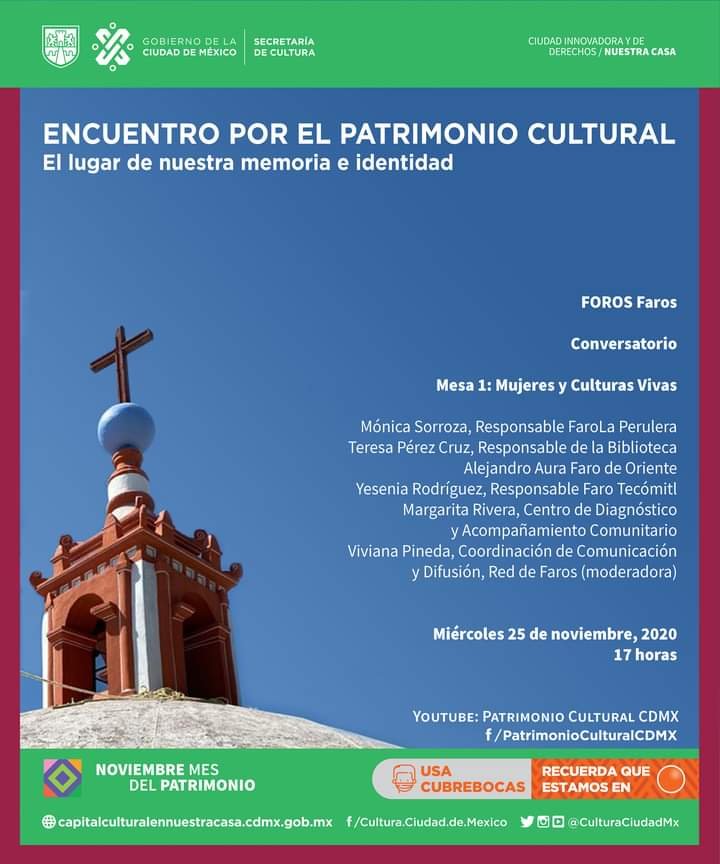PODCAST
07 MAY, 2024 E159: Margarita Rivera Arrivillaga
“Intersectionality. Art. Anthropology and public health. We normally associate the study of human health with careers such as medicine or biological sciences. But there are other often overlooked branches of science that play an indispensable role in health. In this episode we speak with Guatemalan anthropologist, demographer and artist Margarita Rivera Arrivillaga.
Margarita shares with us more about the role that intersectionality should play in participatory research and local public health proposals, as well as other ways in which we need anthropology in our daily lives. From her love for reading to living anthropology, without leaving aside at every step her passion for different forms of art...and the art of people watching? hahahah, don't miss it!”
EVENTS AND PRESENTATIONS
8th Annual Femme Frontera Filmmaker Showcase
“Filming Borders & Breaking Barriers: A Guide” Panel Discussion
A dialogue featuring filmmakers and policy experts from the U.S.-Mexico border who will discuss the logistics and difficulties of filming along borders, and how it influences how we share, challenge, and reclaim our border narratives.
Primer Encuentro de Antropologías del Arte de América Latina. Laboratorio transdisciplinario de investigación y reinvención, Ciudad de México, México.
Festival de la Palabra 2022: “Svetlana Alexiévich: La narrativa entre el heroísmo y el dolor”
Córdoba, Veracruz, Mx
FOROS Faros; Encuentro por el Patrimonio Cultural: El lugar de nuestra memoria e identidad
Mujeres y Culturas Vivas
WORKSHOPS
Intersectionality and Representation Through Poetry”
2020 CUENCA & CEDAC, cdmx
2021 Chihuahua, MX
VIDEO
Chaguar Mishqui, Ecuador (2018-2019)
In this video, we worked together with Agave Spirit, an Ecuadorian initiative that seeks to recover the ancestral use of agave that has been left in the historical peripheries of this country.
Chaguar Mishqui, best known in the western world as Agave plant, is a sacred plant that keeps on giving the gift of a drink, honey and wilderness.
Directed by Raúl Fernando Pérez Lira
Photography by Raúl Fernando Pérez Lira, Mariana Góngora, Margarita Rivera A., Neko Stroman.
Editing by Mariana Góngora
Los Pescadores de Machalilla (2018)
Short documentary featured at the XI Coloquio de Antropología y Sociología, Universidad del Valle de Guatemala (2018)
In the port of Machalilla, located on the coast of the province of Manabí, Ecuador, there is an activity called "artisanal fishing". This type of fishing differs from industrial fishing in aspects such as the quantity of fish, the type of fish, the size of the boat, and the area in which they are allowed to fish, among other things. The fishing boats go out at night and in the morning send out smaller boats that return to the beach loaded with various types of fish, such as sardines. Some men unload the boat and place the fish on boards where they sort and clean them to send them to companies, markets, or sell them to individuals in different parts of Ecuador.
Co-directed by Mariana Góngora and Margarita Rivera A.
Editing by Mariana Góngora and Margarita Rivera A.
Sound design by Mariana Góngora
El Espíritu del arpa (2018)
Short documentary featured at the XI Coloquio de Antropología y Sociología, Universidad del Valle de Guatemala (2018)
Harp music plays a key role in the ritual life of the Kichwa communities of northern Ecuador, to the extent that some researchers argue that if the music is lost, so is the ritual. With a specific repertoire for each situation, harp music leads a marriage on the right path, as well as it helps children's souls to ascend to the stars. Harpists say that in the harp lives a spirit that chooses its performer and gives them a special responsibility in their community.
Directed by Raúl Fernando Pérez Lira.
Editing by Margarita Rivera A., Mariana Góngora, Raúl Fernando Pérez Lira.
Photography by Mariana Góngora, Margarita Rivera A., Iván Castaneira, Jonatan Rosas, Alejandro Ponce.
Harpists: Alejandro Terán (Tayta Algodón) Ali Lema Danny Bonilla Lenín Farinango
Fixed: Cultura Fixed Gear en Guatemala Pt.1 & Pt.2 (2012)
Parte 1 de 2
Parte 2 de 2
Short documentary featured at the V Coloquio de Antropología y Sociología, Universidad del Valle de Guatemala (2012)
In 2012, a clandestine race of fixed-gear bicycles was carried out. Bikers used the streets closed for the half marathon by the municipality in Guatemala City. This work tries to show the use of fixies or fixed-gear bikes as the emergence of an urban culture that goes beyond fashion.
This video was made for the visual anthropology course.
Directed by Margarita Rivera A.
Editing by Margarita Rivera A.
Photography by Margarita Rivera A., and Diego Diaz
Bikers: Blanca Estrada, Zully Morales, Luis Otzoy, Mario Otzoy, Ralph Sosa, Dani Castellón, Tyler Legacy.
TRANSMEDIA
#NosDuelen56 (2019)
On March 8, 2017, In Guatemala, a fire in the facilities of the "Hogar Seguro Virgen de la Asunción" — home for children and adolescents in charge of the State — killed 41 girls and seriously injured 15 others who were locked in one of the areas. The girls locked in the facility were protesting against abuses and injustices they were suffering from the people who were supposed to take care of them. The tragedy demonstrates the violence of the State against the most vulnerable populations based on classism, racism and misogyny.
This tragedy originated the #NosDuelen56 movement which is a cry for justice through art.
Directed by Margarita Rivera A.
Edited by Margarita Rivera A.
Performance by Margarita Rivera A.
Music: Explosions in the Sky- Logic of a Dream
Murmullos (Auto-Retrato) (2019)
Self-portrait
Directed by Margarita Rivera A.
Edited by Margarita Rivera A.
Performance by Margarita Rivera A.
Text: Margarita Rivera A.
Resonancias y documentación Poética (2019)
Directed by Margarita Rivera A.
Edited by Margarita Rivera A.
Voices: Margarita Rivera A. and Ana Lucía Morales O.









